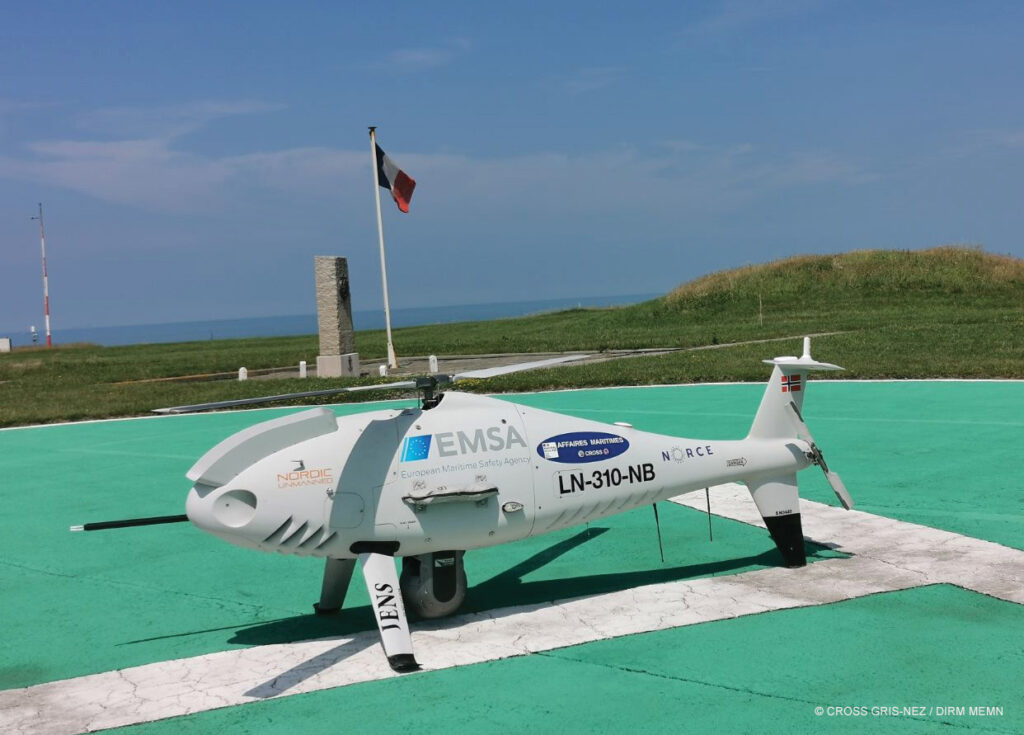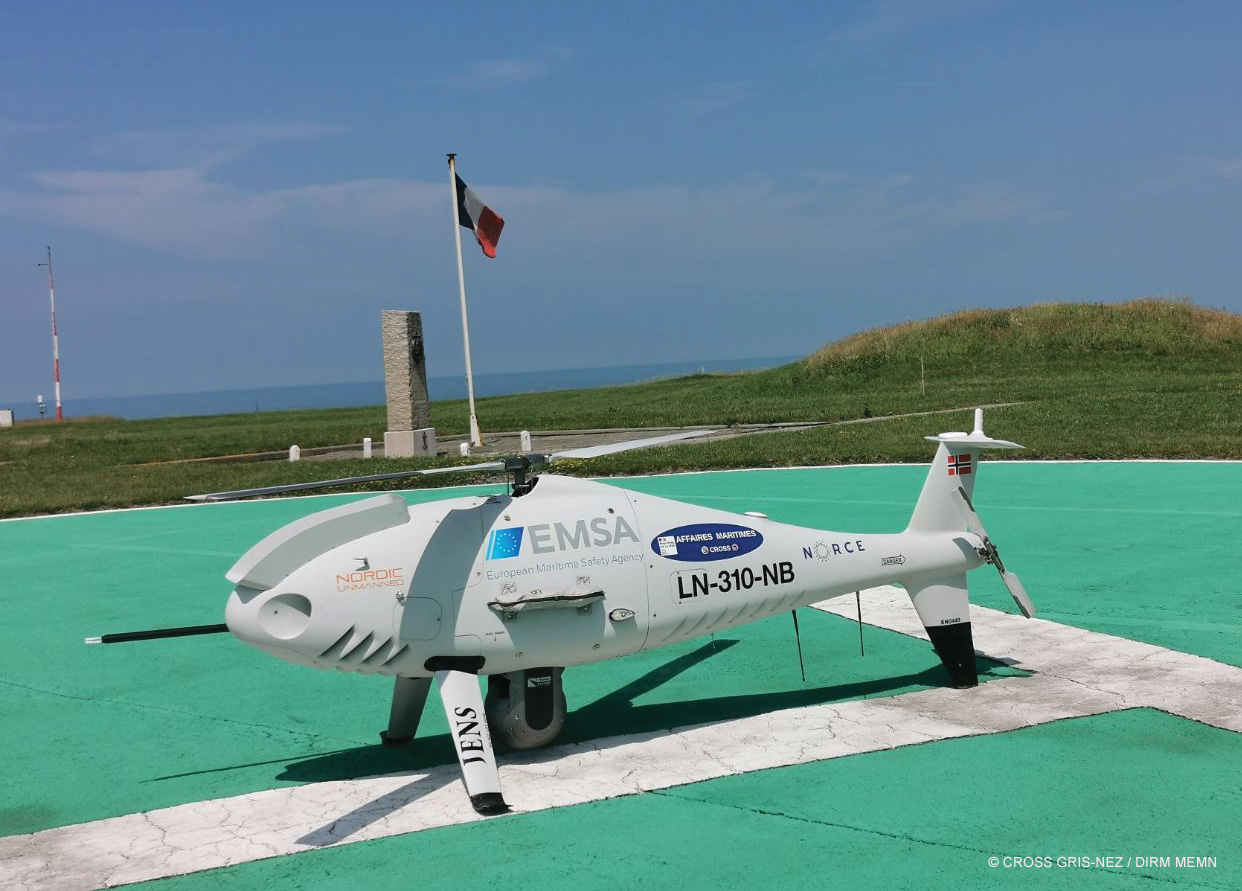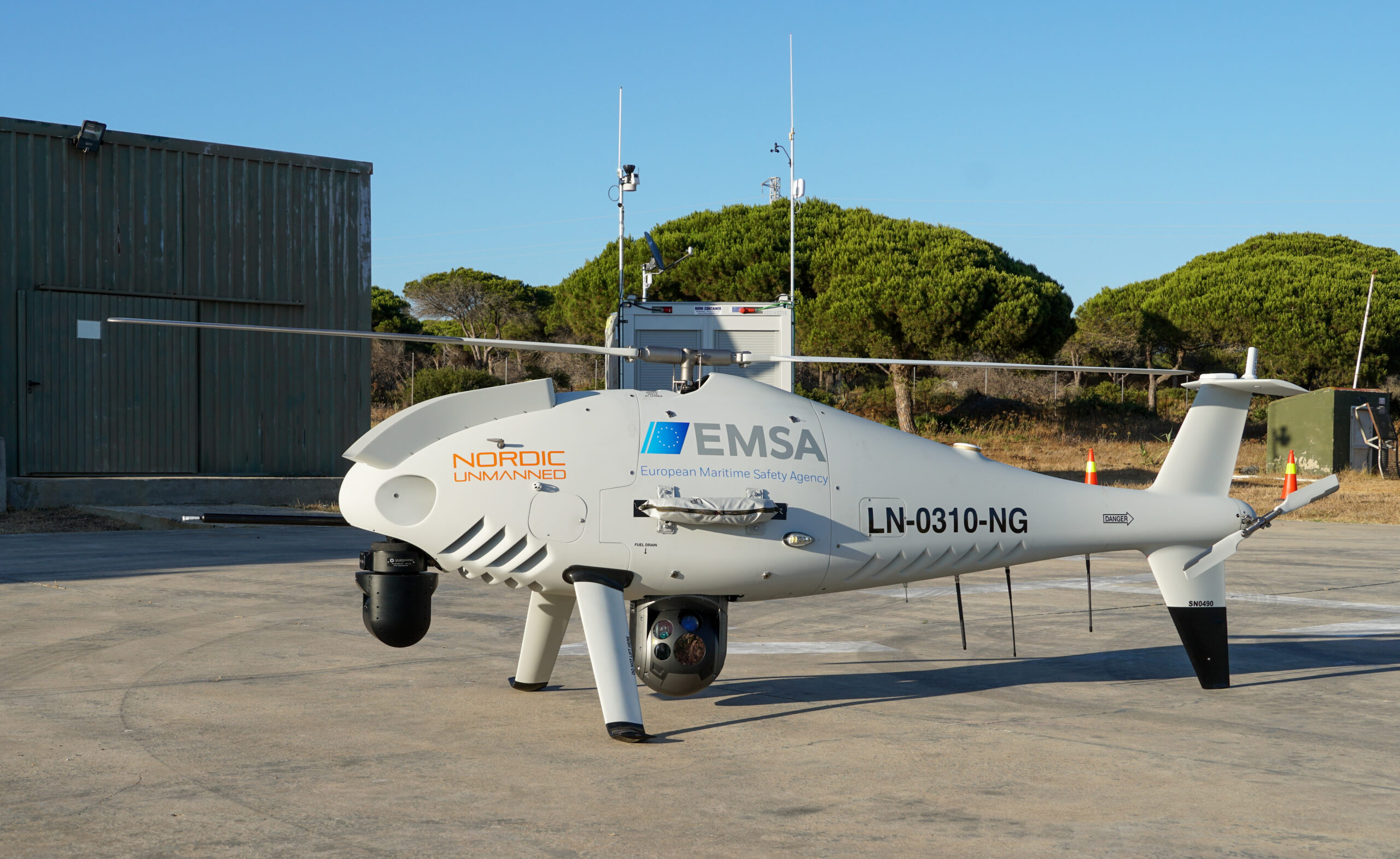Nordic Unmanned is under contract to assist the European Maritime Safety Agency (EMSA) and the French General Directorate for Maritime Affairs, fishery and aquaculture (DGAMPA) in conducting a large-scale emissions monitoring campaign using remotely piloted aircraft. Since April, the CAMCOPTER S-100 has measured the sulphur content in ships’ exhaust plumes in the Channel and the North Sea to detect violations of the applicable limits.
The remotely piloted aircraft (RPAS) takes off from the CROSS Griz-Nez site on the French north coast and flies over selected ships operating in the Channel and the North Sea to measure the sulphur content of their exhaust plumes using specific sensors. The strait is one of the busiest seaways in the world and over 400 commercial vessels use the passageway every day.

This operation is one of multiple simultaneous European deployments for Nordic Unmanned this summer. The Nordic Unmanned crew deliver daily operations with live communication being provided through EMSA’s RPAS Data Centre which allows end-users to follow the RPAS operations live and remotely.
“We are very excited to conduct another emission monitoring campaign for EMSA in the Strait of Calais. With the operational build-up we had in 2021, we can deliver even greater value to our clients. With four active deployments in Europe at this current time, we are very excited to support EMSA and the French authorities with our operational experience.”
Knut Roar Wiig, CEO of Nordic Unmanned.
The air emission results are made available in real-time to responsible authorities in all European ports via THETIS-EU, the Port State Control information system operated by EMSA. The consortium led by Nordic Unmanned, and partner NORCE Research Institute AS, ensures that vessels comply with the IMO 2020 sulphur and NOx regulations. The RPAS detects if the exhaust of the monitored vessels exceeds the limitation according to the regulations in place through IMO 2020. Should vessels utilize fuel with a sulphur concentration greater than 0.10%, they will likely receive an inspection at the next port of call.
The RPAS will also be used to provide French authorities with support to their search and rescue (SAR) activities in the area, by enhancing the maritime domain awareness picture.
ABOUT NORDIC UNMANNED
Nordic Unmanned is global leader of high-end products and services related to drones and data capture. Through worldwide operational experience and industry-leading expertise, Nordic Unmanned supports large governmental and industrial clients in the adaption of unmanned systems and services.
Founded in 2014, the Group has offices in Sandnes, Oslo, Molde, Odense (DK), Cranfield (UK), Hasselt (BE) and Arnsberg (GER) and has quickly become one of the leading providers of unmanned systems and services, with operations across Europe. The Group is ISO 9001-2015 and certified for the operation, maintenance, sale, design, development, and production, of unmanned systems and sensor technology and sensor technology. The production is also AS9100 certified.
For more information visit nordicunmanned.com
ABOUT EMSA
The European Maritime Safety Agency (EMSA) is a decentralised agency of the EU, based in Lisbon, Portugal. EMSA serves the EU’s maritime interests for a safe, secure, green and competitive maritime sector, delivering value for member states through support for pollution prevention and response, maritime surveillance, safety and security, digitalisation and the provision of integrated maritime services, and technical assistance.
Remotely Piloted Aircraft System (RPAS) services are offered free of charge to all EU countries by EMSA. They have been developed to assist in maritime surveillance operations and ship emission monitoring and can operate in all seas surrounding the European Union. RPAS services can provide support to traditional coast guard functions, including search and rescue and pollution prevention and response. The services are offered to member countries individually and as part of EMSA’s regional RPAS strategy, which allows multiple coast guard functions in several EU countries to be supported by one or more RPAS services. See where EMSA is flying.


